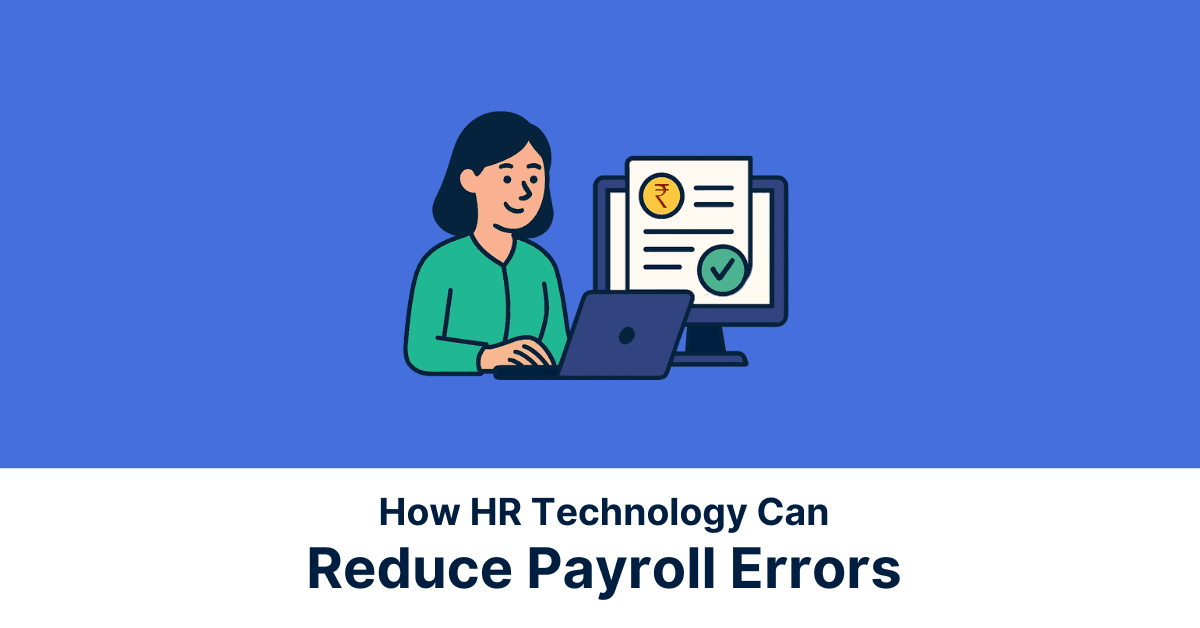As the backbone of India’s industrial and infrastructure sectors, blue-collar workers play a vital role in driving the country’s economic growth. These hard-working individuals, comprising skilled tradesmen, labourers, and technicians, contribute immensely to the nation’s productivity and development. However, the unique financial challenges faced by this segment of the workforce are often overlooked, leaving them vulnerable to financial insecurity and its far-reaching consequences.
In today’s rapidly evolving economic landscape, addressing the financial wellness of blue-collar workers has become increasingly crucial – not just for the wellbeing of the employees, but also for the long-term success and competitiveness of the organisations that employ them. By recognising the importance of financial wellness and implementing targeted training programs, employers in India can unlock a range of benefits that positively impact both their workforce and their bottom line.
Importance of Financial Wellness for Blue-Collar Workers
From irregular income streams and lack of access to financial services to high levels of debt and inadequate savings – the financial landscape for blue-collar workers can be daunting. With an average gross salary of around ₹3,51,196, the financial crunch leaves them vulnerable to making sub-optimal decisions that can spiral into long-term financial distress.
A few of the financial challenges endured by this working segment include:
- Irregular Income: Many blue-collar workers are employed in industries with seasonal or fluctuating demand. This can lead to inconsistent paychecks, making it difficult to plan and budget effectively.
- Lack of Access to Financial Services: Blue-collar workers may have limited access to formal banking and financial services, especially in rural areas. This can lead to reliance on informal lending sources, which often charge exorbitant interest rates.
- Limited Job Security: Many blue-collar jobs come with little to no job security. The fear of sudden job loss can exacerbate financial stress and hinder long-term financial planning.
Impact on Mental Well-being and Family Life
The financial struggles of blue-collar workers not only affect their individual health but also have a ripple effect on their mental well-being and family life:
- Mental Well-being: Constant financial pressure can lead to chronic stress, anxiety, and depression. The mental burden of trying to make ends meet on a low or irregular income can result in decreased motivation and overall mental exhaustion.
- Family Relationships: Financial stress often strains family relationships, leading to conflicts over money management and spending priorities. This tension can further exacerbate mental health issues and create a negative cycle that affects both work and home life.
Addressing Financial Literacy Gaps
The financial literacy gaps among blue-collar workers in India are multifaceted. Many lack a fundamental understanding of budgeting, saving, debt management, and financial products. This knowledge deficit can lead to poor decision-making, such as taking on high-interest loans, failing to save for emergencies, or misunderstanding the terms of insurance policies.
Moreover, blue-collar workers often have limited exposure to formal financial institutions and services. They may rely on informal sources of credit, such as moneylenders, which can trap them in cycles of debt. This lack of access to mainstream financial tools and guidance further exacerbates the literacy gap.
These knowledge and access barriers can have far-reaching consequences. Without a solid foundation in personal finance, blue-collar workers may struggle to achieve financial stability, plan for the future, and weather unexpected financial shocks. This, in turn, can impact their overall well-being, job performance, and long-term economic prospects.
Addressing these gaps through targeted financial wellness training is crucial. By equipping blue-collar workers with the knowledge and skills to manage their finances effectively, employers can empower their workforce, build financial resilience, and unlock a range of benefits for both employees and the organization.
Benefits of Financial Wellness Training for Employers
Investing in financial wellness training for blue-collar workers can bring a host of benefits for employers. From enhanced employee morale and loyalty to improved productivity and reduced costs, the positive impacts can be far-reaching.
- Enhanced Employee Morale and Loyalty: When employers demonstrate a genuine concern for the financial well-being of their blue-collar workforce, it can lead to increased job satisfaction, trust, and loyalty. Employees who feel supported and empowered in their financial lives are more likely to be engaged, motivated, and committed to the organization.
- Reduced Absenteeism and Turnover: Financial stress is a leading cause of absenteeism and employee turnover. By providing financial wellness training, employers can help blue-collar workers manage their finances more effectively, reducing the frequency of missed workdays and the costs associated with high turnover.
- Improved Employee Productivity: Financial stress can be a significant distraction in the workplace, leading to reduced focus, poor decision-making, and lower overall productivity. When blue-collar workers have a better handle on their finances, they can devote more of their attention and energy to their work, ultimately benefiting the organization’s bottom line.
By addressing the financial wellness needs of their blue-collar workforce, employers in India can create a more stable, engaged, and productive workforce – a win-win for both the organization and its employees.
Components of Effective Financial Wellness Training
Designing an effective financial wellness training program for blue-collar workers in India requires a comprehensive approach that addresses their unique needs and challenges. Some key components to consider include:
Budgeting and Saving
Effective budgeting and saving techniques are foundational to financial wellness. The training should cover practical strategies for tracking expenses, creating spending plans, and building up emergency savings. Special attention should be given to the challenges of irregular income streams and managing cash flow.
Some key topics to include:
- Importance of budgeting and the 50-30-20 rule
- Techniques for tracking expenses (e.g., expense tracking apps, enveloping system)
- Creating a realistic monthly budget
- Tips for cutting discretionary spending
- Strategies for increasing savings (e.g., automatic transfers, savings challenges)
- Importance of an emergency fund and how to build one
- Managing irregular income and cash flow
Managing Debt
Many blue-collar workers in India carry significant debt burdens, whether from personal loans, credit cards, or informal sources. The training should provide guidance on debt reduction strategies, negotiating with creditors, and accessing debt management resources.
Key topics to cover:
- Understanding different types of debt (e.g., credit cards, personal loans, informal loans)
- Strategies for prioritizing and reducing debt (e.g., debt snowball, debt consolidation)
- Negotiating with creditors and managing debt collection
- Identifying and avoiding predatory lending practices
- Resources for debt counselling and management
Resources for Debt Management
Providing workers with access to resources for debt management, such as financial counselling services or debt management programs, can help them take control of their debt and work towards financial stability.
Understanding Financial Products
Many blue-collar workers are unfamiliar with basic financial products, making them vulnerable to predatory lending practices. Training should include an overview of common financial products such as:
- Loans: Explaining the different types of loans available, including personal loans, home loans, and education loans, can help workers make informed borrowing decisions.
- Insurance: Educating workers about the importance of insurance, including health insurance, life insurance, and disability insurance, can help them protect themselves and their families from financial hardship.
- Savings Accounts: Teaching workers about the benefits of different types of savings accounts, such as fixed deposits and recurring deposits, can help them build their savings more effectively.
Benefits and Risks of Each Product
It’s important for workers to understand both the benefits and risks associated with each financial product. This knowledge can help them make informed decisions and avoid potential pitfalls.
How to Choose the Right Products
Training should also include guidance on how to choose the right financial products based on individual needs and circumstances. This can help workers avoid taking on unnecessary debt or purchasing products that don’t meet their needs.
Planning for Emergencies
Building an emergency fund is crucial for financial resilience, yet many blue-collar workers lack the savings to cushion against unexpected expenses. The training should emphasize the importance of emergency funds and provide step-by-step guidance on how to build and maintain them.
Workers can be taught simple steps to build an emergency fund, such as:
- Setting a Savings Goal: Encouraging workers to set a goal for their emergency fund, such as saving three to six months’ worth of expenses.
- Starting Small: Advising workers to start with small, regular contributions to their emergency fund can make the process more manageable and less overwhelming.
Some other key topics that can be covered are:
- Defining an emergency fund and its purpose
- Determining the appropriate size of an emergency fund
- Strategies for building an emergency fund (e.g., automatic transfers, savings challenges)
- Maintaining the emergency fund and replenishing it after use
- Accessing emergency funds responsibly
Retirement Planning
Retirement planning may seem like a distant concern for blue-collar workers, but starting early is key to securing a stable financial future. The training should highlight the benefits of long-term savings, introduce retirement planning tools and resources, and encourage workers to take proactive steps towards their golden years.
Topics to address:
- Importance of retirement planning and saving early
- Understanding retirement income sources (e.g., EPF, NPS, personal savings)
- Calculating retirement savings needs and goals
- Steps to start saving for retirement
Tools and Resources for Retirement Planning
Providing workers with access to tools and resources for retirement planning, such as retirement calculators, pension plans, and financial advisors, can help them make informed decisions about their future.
By addressing these core financial wellness topics, employers can empower their blue-collar workforce with the knowledge and skills to make informed decisions, achieve greater financial stability, and ultimately improve their overall well-being.
How to Implement Financial Wellness Training for Workers
Implementing a successful financial wellness training program for blue-collar workers in India requires a strategic and well-planned approach. Some key steps to consider include:
Identifying Training Needs
Start by conducting a comprehensive needs assessment to understand the specific financial challenges and knowledge gaps faced by your blue-collar workforce. This can involve surveys, focus groups, or one-on-one interviews to gather insights and identify the most pressing areas to address.
Choosing the Right Training Format
When it comes to delivering financial wellness training, consider a mix of formats that cater to the preferences and schedules of your blue-collar employees. This could include interactive workshops, informative seminars, e-learning modules, or even one-on-one financial coaching sessions.
Engaging Financial Experts
Leverage the expertise of qualified financial professionals, such as certified financial planners or wealth management advisors, to develop and deliver the training content. These experts can provide valuable insights, tailor the material to your workforce’s needs, and ensure the information is accurate and up-to-date.
Measuring Training Effectiveness
Implement a robust evaluation process to measure the impact of the financial wellness training. This can include pre-and post-training assessments, employee feedback surveys, and tracking key performance indicators (KPIs) such as changes in savings rates, debt levels, or financial stress levels.
Continuous Improvement
Use the insights gathered from the evaluation process to continuously refine and improve the financial wellness training program. Regularly seek feedback from employees, adapt the content to address emerging needs, and explore new and innovative ways to engage and support your blue-collar workforce.
By taking a strategic and comprehensive approach to implementing financial wellness training, employers in India can create a lasting impact on the financial resilience and overall well-being of their blue-collar workers.
Conclusion
Investing in the financial wellness of blue-collar workers in India is not only a smart business decision but also a socially responsible one. By providing targeted financial education and support, employers can empower their workforce, improve organizational outcomes, and contribute to the financial resilience of this critical segment of the Indian economy.
From enhancing employee morale and loyalty to reducing absenteeism and improving productivity, the benefits of financial wellness training are far-reaching. By addressing the unique challenges and knowledge gaps faced by blue-collar workers, employers can unlock a range of positive impacts that benefit both the individual and the organization.
As Indian businesses strive to build a more equitable and prosperous future, prioritizing the financial wellness of their blue-collar workforce should be a key strategic priority. By taking proactive steps to implement comprehensive financial wellness programs, employers can not only support their employees but also pave the way for a more financially secure and resilient workforce.
*Disclaimer:
The information contained herein is not intended to be a source of advice concerning the material presented, and the information contained in this article does not constitute investment advice. The ideas presented in the article should not be used without first assessing your financial situation or without consulting a financial professional.




















